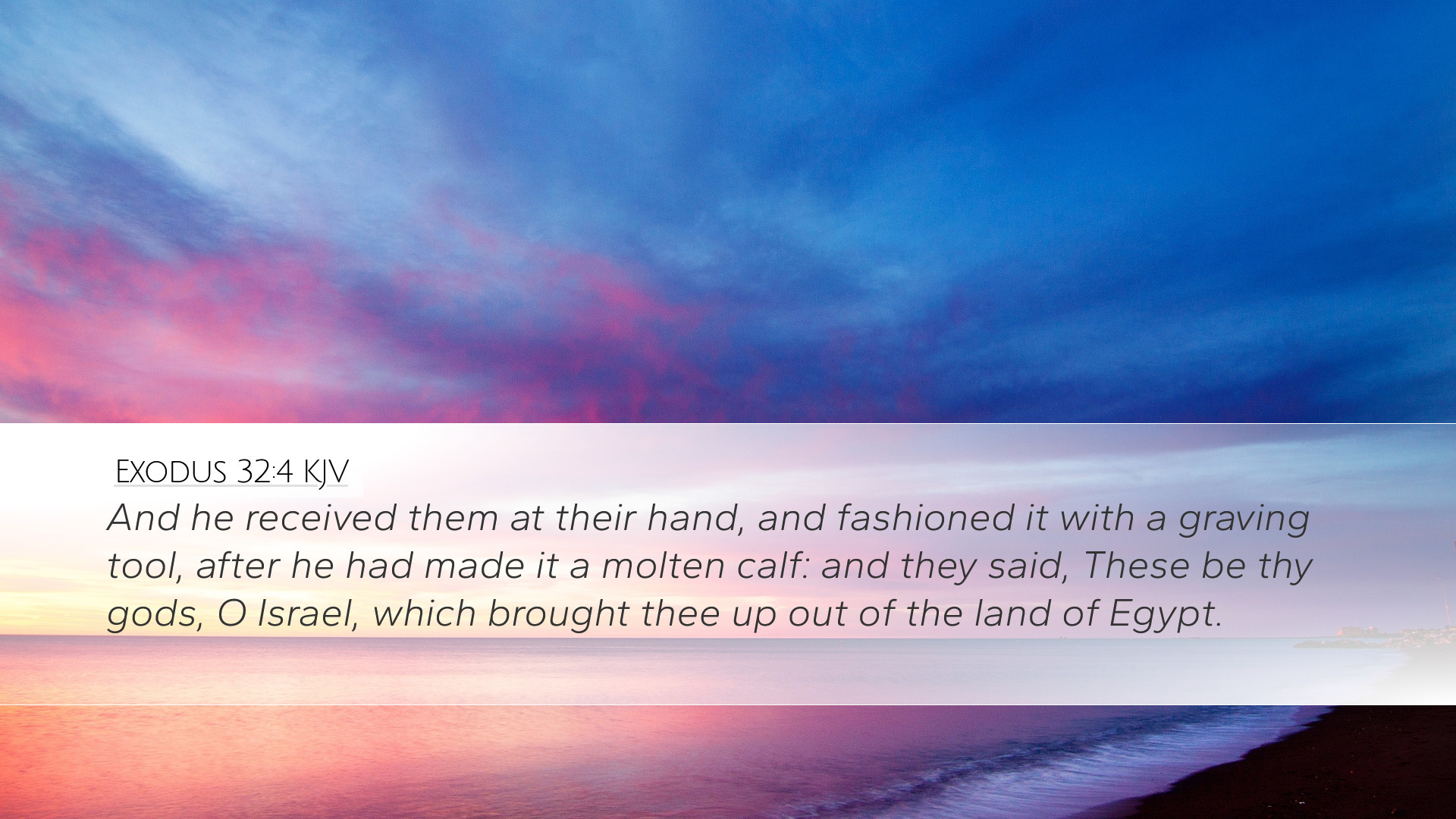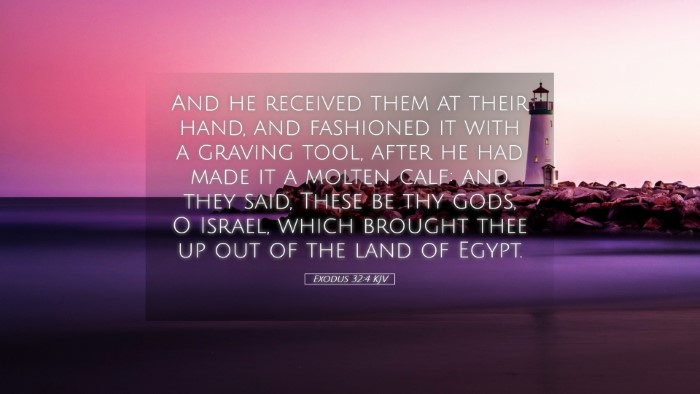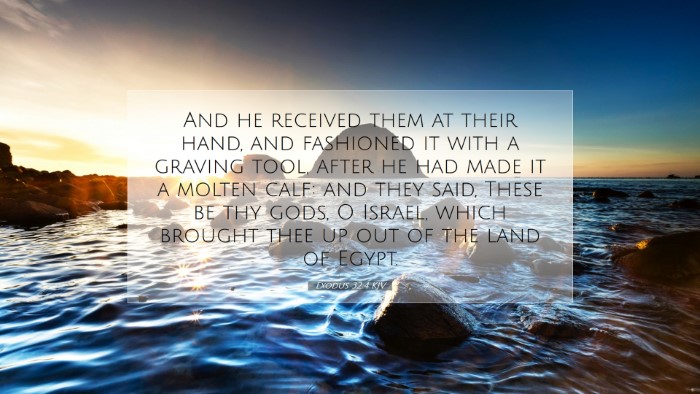Commentary on Exodus 32:4
Exodus 32:4 states:
"And he received the gold from their hand, and he fashioned it with a graving tool, and made a golden calf. And they said, 'These are your gods, O Israel, who brought you up out of the land of Egypt!'"
Overview and Context
The passage of Exodus 32:4 is pivotal in the narrative of the Israelites' journey through the wilderness. It demonstrates not only the immediate rebellion against God following His deliverance but also highlights the underlying themes of idolatry and human frailty.
Commentary Insights
Matthew Henry
Human Ingratitude: Henry points out that this act of creating and worshiping a golden calf is a profound demonstration of ingratitude towards God. Having been delivered from the bondage of Egypt, the Israelites quickly forsake their covenant with the Almighty for a tangible representation of the divine.
Leadership and Responsibility: Additionally, Henry emphasizes the role of Aaron in this event. As the leader left in charge during Moses' absence, Aaron's weakness and his capitulation to the people's demands reveal the susceptibility of leaders to peer pressure and the responsibility they bear over the spiritual direction of their followers.
Albert Barnes
Idolatry as a Recurring Theme: Barnes discusses how idolatry manifests itself repeatedly throughout biblical history. He notes that the Israelites, witnessing the miraculous workings of God, still chose to revert to the idols of Egypt, thus illustrating a deep-seated spiritual disease. Barnes argues that this episode exposes the human tendency toward idolatry, often stemming from a lack of patience and trust in God's timing.
Misinterpretation of Divine Power: Barnes also asserts that the Israelites misinterpreted God's power and presence. Their creation of the golden calf was not merely an act of rebellion but an attempt to visualize and control the divine in a manner they could comprehend and manipulate. This misunderstanding sets a precedent for many who seek to confine God within their limited understanding.
Adam Clarke
Transformation of Material into Worship: Clarke focuses on the process of crafting the calf from gold. He highlights the irony in the transformation of something valuable and precious into an object of worship, suggesting that the things we possess can sometimes lead us away from genuine reverence toward malformations of faith.
Symbolism of the Calf: In his commentary, Clarke elaborates on the symbolism of the calf itself. The calf, commonly associated with strength and fertility in ancient cultures, represents a perversion of true worship as the people rightfully honor the strong God but wrongly attribute that honor to a created object.
Theological Themes
- God's Faithfulness vs. Human Rebellion: This verse encapsulates the tension between divine faithfulness and human rebellion, portraying the stark contrast between God's unchanging nature and the fluctuating loyalty of His people.
- The Dangers of Misguided Leadership: The failure of Aaron serves as a cautionary tale about the consequences of flawed leadership and the necessity for leaders to remain steadfast in their commitments to God.
- The Idolatry of the Heart: The golden calf serves as a metaphor for the idols we create in our own lives, illustrating that even the most miraculous experiences can lead to subsequent failures in faith if we do not remain vigilant against the allure of idolatry.
Practical Implications for Today’s Believers
As pastors, theologians, and students of the Bible reflect on Exodus 32:4, several practical implications arise concerning contemporary faith practices:
- Remaining Vigilant: Just as the Israelites fell into idolatry shortly after experiencing God's power, modern believers must remain vigilant against the tendencies to transform their treasures into idols.
- Encouraging Genuine Worship: This passage underscores the need for churches to foster environments of genuine worship that honor God rather than conforming to cultural standards of worship that mirror society's materialism.
- Leadership Accountability: The failings of Aaron serve as a reminder for leaders to uphold their responsibilities, seeking God’s guidance and remaining firm in faith even when faced with opposition or pressure from others.
Conclusion
The events surrounding Exodus 32:4 remind us of the fragility of faith and the profound impacts of leadership on community faith. It encourages students and those in leadership roles to constantly reflect on their practices, realizing that genuine worship must come from the heart and cannot be reduced to mere symbols or objects. In an era where distractions abound and secular influences challenge spiritual integrity, the message of Exodus 32:4 remains crucial for believers today.


